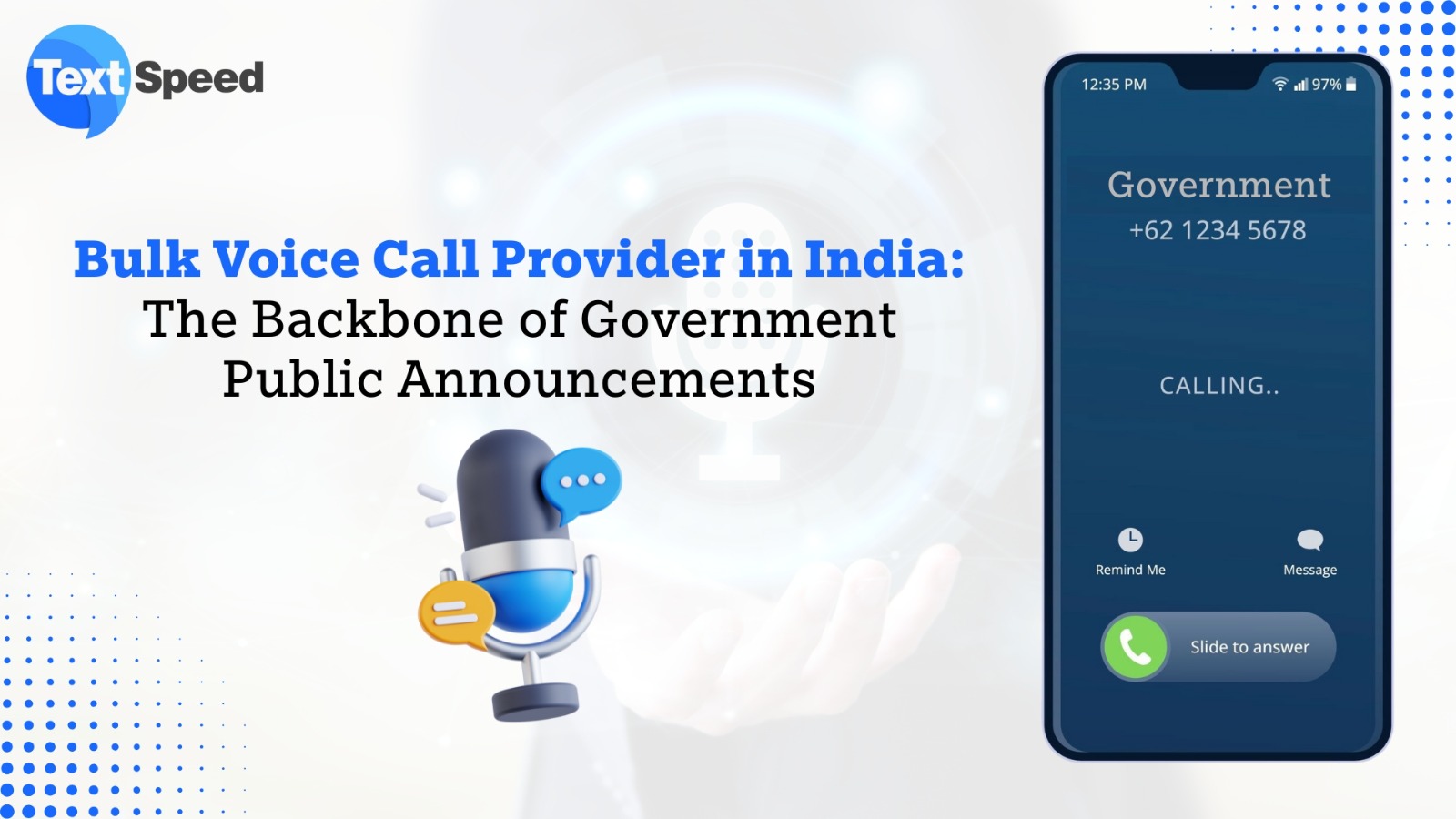Introduction
In an age where digital communication channels are evolving rapidly, traditional methods like voice calls remain highly effective—especially in reaching masses with urgent and important information. Government agencies, in particular, have found tremendous value in using bulk voice calls for public announcements, emergency alerts, awareness campaigns, and voter outreach.
With the help of a trusted Bulk Voice Call Provider in India, authorities can disseminate vital information instantly, even in remote areas where internet connectivity is poor. This blog explores how government departments are leveraging bulk voice calling technology, its impact, key use cases, and why it continues to be a preferred communication tool across the public sector.
What Are Bulk Voice Calls?
Bulk voice calls are pre-recorded voice messages delivered to thousands (or even millions) of recipients simultaneously. These calls are automated, scalable, and highly customizable, making them suitable for time-sensitive and wide-reaching campaigns. Government agencies use these systems to convey information in regional languages, ensuring inclusivity and clarity across different demographics.
Why Bulk Voice Calls Work for Government Communications
1. Wide Reach Across Demographics
Voice calls have the unique advantage of being accessible to everyone with a mobile or landline phone—regardless of literacy level or internet access. In a diverse country like India, where rural populations may not use smartphones or access web-based platforms, voice calls serve as a reliable medium.
2. Multilingual Support
Government agencies frequently deliver messages in local languages to maximize comprehension and trust. Bulk voice calling platforms enable pre-recorded messages in multiple dialects, making them ideal for multilingual societies.
3. High Attention and Recall Rates
Unlike SMS or emails, which may go unread or be ignored, voice calls demand real-time attention. The recipient listens to the entire message, which increases the likelihood of message retention and action.
Key Use Cases of Bulk Voice Calls in Government
1. Emergency Alerts and Disaster Management
During natural disasters such as floods, cyclones, earthquakes, or pandemics, governments use bulk voice calls to issue real-time alerts. These alerts may include evacuation instructions, health advisories, or resource availability.
A reliable Bulk Voice Call Provider in India ensures timely delivery to all registered mobile users in affected areas, helping save lives and prevent chaos.
2. Public Health Campaigns
Bulk voice calls have been crucial in health campaigns—such as vaccination drives, hygiene awareness, and COVID-19 protocols. Pre-recorded calls from health officials can build trust and encourage public participation in health programs.
3. Electoral Participation
Election commissions utilize bulk voice calling to remind citizens to vote, inform them of polling locations, or guide them on how to check their names on the electoral roll. The direct and official tone of voice messages makes them more impactful than text-based reminders.
4. Policy and Scheme Awareness
Government welfare schemes—such as subsidies, pension programs, or employment opportunities—require wide dissemination. With the help of a Bulk Voice Call Provider in India, authorities can deliver information to beneficiaries at scale and in a personalized manner.
5. Law and Order Announcements
Police departments use voice calls for curfew alerts, traffic advisories, and crime prevention tips. It ensures that public safety information reaches citizens promptly, even in densely populated areas.
Advantages of Using a Bulk Voice Call Provider in India
-
Nationwide Coverage: Indian providers offer vast network access, ensuring message delivery even in the most rural pockets.
-
Scalability: Whether reaching 10,000 or 10 million people, these platforms scale effortlessly.
-
Real-Time Analytics: Agencies receive detailed reports on call status, pickup rates, and message delivery performance.
-
Integration Support: Modern providers allow integration with CRMs and databases, enabling segmented and targeted communication.
Choosing the right Bulk Voice Call Provider in India is crucial for government bodies to maintain consistency, compliance, and efficiency in their communication efforts.
Challenges and Considerations
While bulk voice calls are powerful, they come with considerations:
-
Consent and Privacy: Contact databases must comply with legal frameworks like TRAI guidelines to avoid misuse.
-
Message Duration: Calls must be concise, ideally under 30 seconds, to ensure they are heard entirely.
-
Spam Avoidance: Overuse or irrelevant calls can lead to users ignoring important messages. Strategic planning and frequency control are essential.
Future of Bulk Voice Calls in Governance
As India advances toward a digitally inclusive society, voice communication remains a core part of the outreach strategy. The rise of AI and automation is expected to further enhance voice call personalization and timing accuracy.
In addition, integrations with citizen service portals, e-governance apps, and digital ID systems will allow even more targeted and efficient messaging.
Conclusion
Bulk voice calls have proven to be an indispensable tool for government communication in India. Whether it's disaster response, health awareness, or electoral reminders, this technology ensures that critical information reaches the right people at the right time. By partnering with an experienced Bulk Voice Call Provider in India, government agencies can maximize the impact, reach, and reliability of their public communication initiatives.
As communication demands grow, bulk voice calling will continue to play a key role in building a more informed, connected, and responsive nation.


